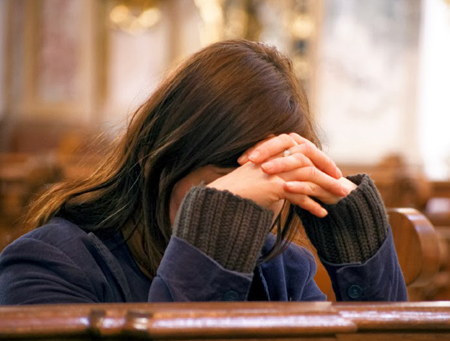Praying doesn't necessarily sooth anxiety disorder symptoms
 Washington, Aug 13 : A new study has claimed that while praying eases a lot of problems, it doesn't sooth symptom of anxiety-related disorders for everyone.
Washington, Aug 13 : A new study has claimed that while praying eases a lot of problems, it doesn't sooth symptom of anxiety-related disorders for everyone.
According to the research by Baylor University, those who prayed to God, whom they thought would be there to comfort and protect them in times of need, were less likely to show symptoms of anxiety-related disorders, such as irrational worry, fear, self-consciousness, dread in social situations and obsessive-compulsive behavior, than those who prayed but did not expect God to comfort or protect them.
Researchers analyzed data from 1,714 of the individuals who participated in the most recent wave of the Baylor Religion Survey, completed in November 2010 by the Gallup Organization and analyzed by sociologist researchers at Baylor. The study focused on general anxiety, social anxiety, obsession and compulsion.
The Baylor study findings were consistent with a growing body of research indicating that a person's perceived relationship with God could play an important role in shaping mental health.
In theory, people who pray regularly may be inclined to live out their religion more faithfully, which may lead to less stress, such as marriage and family conflicts, researchers wrote.
However, when it came to personal prayer outside of religious organizations, while some studies indicated frequent praying to have had positive effects on mental health, others report no effect or even that people who pray more often have poorer mental health than those who pray less frequently.
The study is published in the journal Sociology of Religion. (ANI)